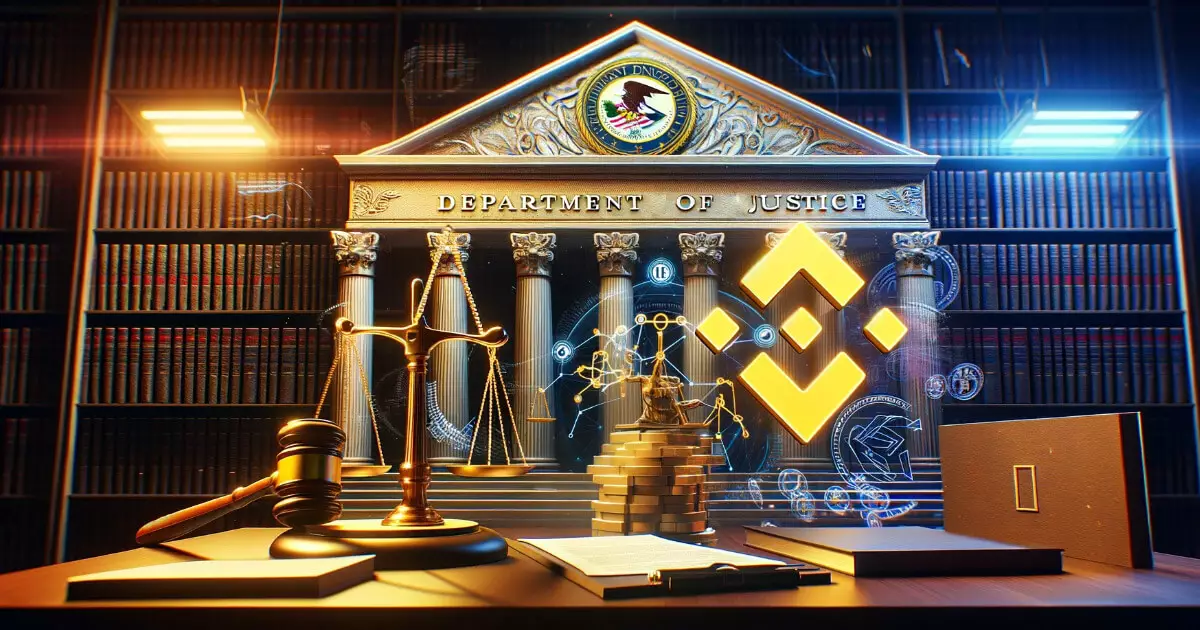Binance, one of the world’s largest cryptocurrency exchanges, has recently submitted two crucial filings in response to a case brought by the U.S. Securities and Exchange Commission (SEC). These filings aim to dismiss the allegations made by the SEC against Binance’s companies and former CEO, Changpeng Zhao. In its filings, Binance argues that the SEC has failed to provide sufficient evidence to prove that Binance tokens and services are securities. The exchange also asserts that the SEC’s claims regarding certain transactions are time-barred and that the application of securities law outside the U.S. is unwarranted.
Binance’s first filing seeks to dismiss the SEC’s case entirely. The exchange argues that the SEC has not effectively demonstrated that Binance tokens and services should be classified as securities or investment contracts. Furthermore, Binance contends that the SEC’s claims regarding its native token, BNB, are time-barred, as the asset’s offerings occurred outside the jurisdiction of the U.S. Binance also questions the SEC’s attempt to apply securities law beyond the U.S. in a way that is not legally permissible.
Failure to Provide Fair Notice
The filing by Binance additionally accuses the SEC of failing to provide fair notice about its claims. The exchange asserts that the SEC’s lack of communication and detailed explanation regarding its allegations is grounds for the dismissal of the lawsuit. Binance argues that without proper notice, it cannot effectively address the SEC’s claims, hindering its ability to mount a fair defense.
Lack of Personal Jurisdiction
Binance’s filing further argues that the SEC’s claims against Changpeng Zhao, the former CEO of Binance, should be dismissed due to lack of personal jurisdiction. According to Binance’s defense lawyers, Zhao’s role in controlling Binance alone does not provide sufficient grounds for jurisdiction. The SEC has failed to demonstrate that Zhao had any meaningful contact with U.S. users that would be relevant to the case. Binance emphasizes that personal jurisdiction’s definition differs in criminal and civil cases and that jurisdiction exists in the Department of Justice (DOJ) case but not the SEC’s case.
Binance’s recent filing also challenges the SEC’s attempt to use plea deals made with the DOJ and other U.S. government agencies as evidence. The exchange argues that these plea deals, which relate to violations of the Bank Secrecy Act, are separate from the ongoing SEC case and should not be taken into account. Binance maintains that the plea deals do not prove fair notice or support the SEC’s claims related to securities and exchange acts.
In its filings, Binance raises numerous other objections to the SEC’s case. The exchange argues that the SEC has not amended its complaint and that its attempt to invoke judicial notice is not a substitute for amendment. Binance also asserts lack of jurisdiction defenses for both its companies and Changpeng Zhao himself. The filing points out that none of the plea agreements admit that relevant transactions or irrevocable liability occurred in the United States.
Binance remains steadfast in its fight against the SEC’s allegations. The exchange’s recent filings assert that the SEC has failed to provide sufficient evidence, fair notice, and proper jurisdiction in its case. Binance calls for the complete dismissal of the lawsuit, emphasizing that the SEC’s claims are unsubstantiated. As the legal battle between Binance and the SEC continues, the outcome will undoubtedly have significant ramifications for the cryptocurrency industry as a whole.















